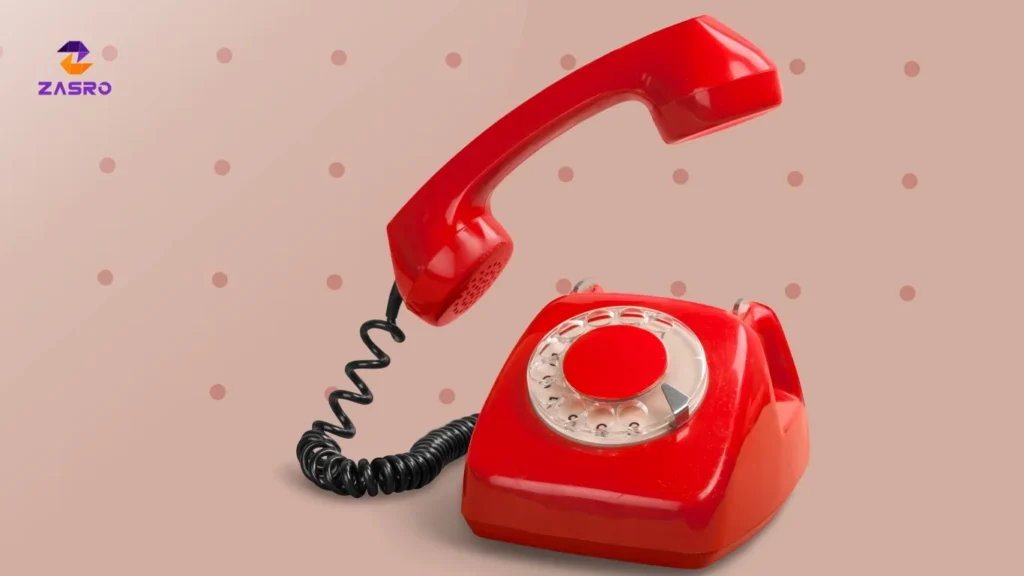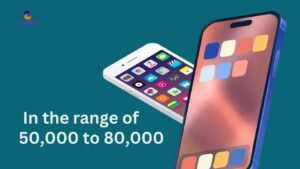The telephone is effective when used efficiently
Every business that does well needs to be able to talk to its customers. Communicating clearly is important to stay productive and build good relationships, whether you’re talking to customers, working with your team, or resolving problems with customers. Although there are many methods of communication, the telephone is still an important part of the job. A telephone is useful, but having it is not enough. To get the most out of it, you need to know how to use it well.
Figuring out how to work a telephone
- Defining how well a telephone works
Telephone efficiency means being able to communicate effectively while using as little time and energy as possible. This includes many things, such as being able to communicate clearly, respond quickly and solve problems well. - Why is it important to be efficient in communication?
In today’s fast-paced working world, time is of the essence. Effective communication not only saves time, it also leads to more work and happier customers. Additionally, companies that can communicate with each other quickly and clearly have a massive advantage over their competitors in a highly competitive marketplace.
Benefits of making good use of the telephone

- More work is being done
Using the phone effectively can make conversations within a company easier, thereby increasing productivity. If employees can quickly answer questions, resolve problems, and make decisions over the phone, they can spend their time and energy on other important tasks. - Better customer satisfaction
For businesses, it is very important to have good relationships with customers. When you answer the phone professionally and with care, it can leave a lasting impression on your customers. Businesses can increase customer happiness and loyalty by responding to questions and concerns quickly. - Business relationships strengthened
People who work for businesses can talk to their customers, partners, and vendors on the phone. Building trust and dependability through good communication is the first step towards building a long-term partnership. Businesses can find new ways to work together and make money while keeping these relationships strong.
Problem talking on the phone
- Potential problems with good communication
Although many people use phones, there are some problems in it. Language barriers, technical problems, and misunderstandings of tone or meaning are all common problems. Distractions in the environment or unclear speech may also make it difficult to communicate clearly. - overcome common problems
It would be best if you were alert to deal with these problems. Investing in employee training, using modern communication technologies, and establishing clear rules for communication can help minimize potential issues and ensure that phone calls go smoothly.
Tips for getting the most out of your phone
- Set clear goals before making the call.
Before you pick up the phone, it’s important to know: What is the call for? Setting goals ahead of time is the best way to start conversations that lead to action, whether it’s setting up a meeting, dealing with a customer complaint, or getting more information on a project. - Setting up conversations so they are clear
To use the phone effectively, you must be able to communicate clearly and concisely. Using simple language, avoiding jargon and technical terms, and organizing conversations in a way that helps people understand each other better. - active listening skills
Communication works best when it goes both ways. Active listening means that you not only hear what is being said, but also understand it. Techniques like paraphrasing, asking clarifying questions, and making comments show that you are listening carefully and help people have meaningful conversations.
Using technology to make phones work better
- Using software to manage calls
These days, we live in a digital world where there are many software programs available to make phone calls easier. Call management software helps businesses easily handle both incoming and outgoing calls, track call metrics, and connect calls to the right person or department. - Setting up a CRM system to make tracking and follow-up easier
Account management (CRM) tools are very important for tracking interactions with customers. By connecting phone calls to CRM software, companies can keep track of customer questions, see what actions were taken in response, and keep a complete record of customers for future use.
Help learn to use the phone.
Why is continuous training important?
Every employee in every job and department needs to be able to talk on the phone. Giving workers regular training, workshops and tools on how to speak to people on the phone in a professional manner ensures they have the skills needed to present the business well.
Role-playing games to improve your skills
Role-playing scenarios and other practical exercises provide workers with a safe way to talk on the phone with real people. By pretending to be in different situations and receiving feedback, employees can improve their communication skills and feel more comfortable taking calls.
How to measure how well a telephone works
Key Success Measures (KPIs) for phone calls.
Key performance indicators (KPIs) should be established to measure how well the telephone contact works. Metrics such as call duration, call resolution time, customer satisfaction scores, and sales call conversion rates may be on this list.
View call metrics to make things better.
By regularly looking at call metrics, you can learn a lot about how well phone conversations work. Businesses can improve their phone strategies and general performance by looking for patterns, trends, and places to improve things.
Case studies on how to use the phone effectively
- Telephone Strategies That Work for Businesses
Case studies of well-performing businesses can teach you a lot about how to use the phone effectively. Seeing how businesses use phones to reach their goals, whether they are a large companies or a small start-ups, can teach us a lot and give us ideas. - Real-world examples of improved efficiency
By showing real-life examples of businesses that have become more efficient by using phones, the benefits of effective execution can be seen and touched. These cases show how efficient use of phones can change things, from speeding up sales cycles to streamlining customer service steps.
Ethical things to think about when making calls
- Keeping privacy and confidentiality in mind
Privacy and confidentiality are paramount when talking on the phone, especially when talking about personal things. To keep customer data secure and build trust and ethics, businesses must follow ethical standards and legislation. - Be professional in every interaction.
No matter what the call is about, it’s important to be polite. From greeting callers to dealing with difficult situations, it is important to follow proper etiquette and treat callers with care and courtesy to maintain a professional image.
Being sensitive to other cultures when talking on the phone
- Understanding differences in culture
In a working world that is becoming more globalized, cultural sensitivity is very important when talking on the phone. Businesses can work well with a wide range of partners and avoid misunderstandings or offenses by learning about cultural differences, customs, and communication styles. - Change the way you talk to people.
Changing the way you talk to someone based on their cultural interests shows respect and helps you get along with them. Small acts, like slowing down your speech, greeting someone properly, or respecting cultural norms, can make a big difference in connecting with someone.
How to have difficult conversations

- Tips for Dealing with Disputes on the Phone
In business, you sometimes have to have tough conversations, but you can handle them well if you know what to do. Active listening, empathy and problem-solving are some of the techniques that can help reduce stress and handle challenging scenarios professionally and tactfully. - stress reduction techniques
De-escalation methods are beneficial for de-escalating stressful situations and settling disputes over the phone. Remaining calm, acknowledging feelings, and offering solutions or other options show empathy and help find a good solution.
How to talk on the phone
- How to communicate with courtesy and politeness
Telephone etiquette is an important part of business communication. Simple actions like greeting callers politely, identifying yourself clearly, and saying “please” and “thank you” show respect and professionalism, which improves the entire contact experience. - How to use the phone properly
Proper telephone habits include things like speaking loudly and clearly, not talking over other people, and not using profanity or informal language. If you follow these rules, your phone conversations will be smooth and polite.
Managing risks while talking on the phone
- Take care of potential risks and liabilities.
Using the phone involves risks ranging from misunderstandings to legal problems. Businesses need to intentionally detect and deal with potential risks, put the proper security measures in place, and set rules for handling sensitive information and limiting their legal exposure. - Set rules for private conversations
Conversations that are sensitive, such as about personal information or penalties, need to be handled with caution. Setting clear rules for initiating and continuing these types of conversations over the phone protects privacy, security, and legal requirements.
How will phones be used in the future?
- Impact of new technologies
With the development of technology, the way people talk on the phone is also changing. Voice assistants powered by AI and seamless interactions with other communication channels are some of the new technologies that are changing the future of phone calls. - Thoughts on the future of cell phone use
In the future, phones will be used in a way that is more personalized, automated, and connected to other digital platforms. Voice recognition powered by AI, virtual phone numbers and better data analytics for personalized customer experiences are some of the things that are expected to happen.
Conclusion
The telephone is still a useful business tool for talking to people, as long as it is used correctly. To succeed in today’s competitive business world, companies can make the most of the telephone by learning to use technology, improving their conversation skills, and following ethical guidelines.
















